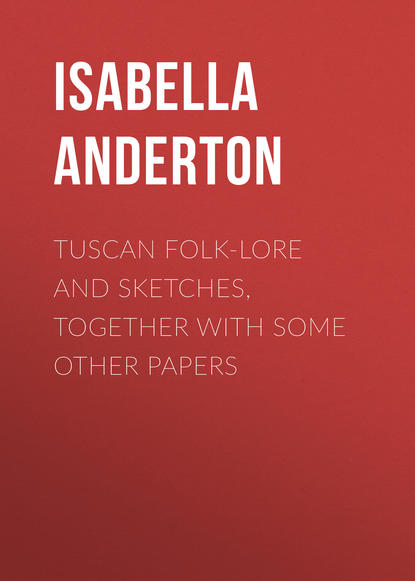По всем вопросам обращайтесь на: info@litportal.ru
(©) 2003-2024.
✖
Tuscan folk-lore and sketches, together with some other papers
Настройки чтения
Размер шрифта
Высота строк
Поля
the oxen rebellious to those hands
which yet had guided europe
headlong
fled from the furrow.
15
napoleon I.
having conquered empires
reduced kings to vassalage
overcome by the snows of russia not by arms
in this hermitage
through him transformed into a palace
dwelt from the 23 august to the 14 September 1814
and having tempered afresh his immortal genius
on the 24 february 1815
hence darted forth to amaze anew the world
at his daring.
The municipality of marciana
with grateful and reverent soul
to so great a name
decreed the erection of this memorial
the 18 february 1863.
16
1897.
17
The sky; formed, according to the ancient Finnic legend, by the wondrous smith Ilmarinen. In the “Song of the Sampo” he boasts that he has made it so well that “no hammer-marks remain; no pincer-marks are seen.”
18
The reader will recognise the allusion to cantos xxi. and xxiv. of Dante’s “Inferno,” of which the former describes the lake of pitch in which the barrators were tortured, and the latter the terrible valley in which the sacrilegious Vanni Fucci and his like were tormented with serpents.
19
Compare, for instance, the Italian and Latin versions of the following verse, taken from a short poem on a laurel branch which the poet, having plucked on the Appian Way, presented to a lady friend who bore the name of Daphne; and compare these again with the well-known Horatian ode “Integer Vitæ”: —
“Io son, Daphne, la tua greca sorella:
Che vergin bionda sul Peneo fuggia,
E verdeggiai pur ieri arbore snella
Per l’Appia Via.
En soror, Daphne, tua quæ fugaci
Jam pede ad Peneum pudibunda adibam;
Appiæ et nuper virui tenella
Margine laurus.
Integer vitæ scelerisque purus
Non eget Mauris jaculis neque arcu
Nec venenatis gravida sagittis,
Fusce, pharetra.”
See also “Sei Odi Barbare di Giosué Carducci, con la versione Latina di Amedeo Crivellucci.” Citta di Castello, 1885.
It must be observed in this connection that Carducci is very apt to change a descending Horatian rhythm into an ascending Italian one, beginning his line with an unaccented and rising to an accented syllable. In this way he obtains much movement and swing.
20
Reprinted by permission, from “La Perseveranza” Milano, Martedì, 20 Marzo 1900.





